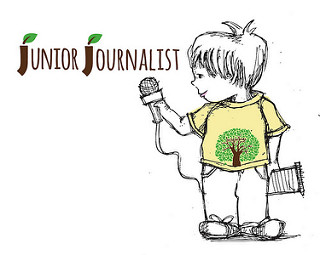
credit to: http://mommymd.com/wp-content/uploads/2014/05/child-development_03.jpg
最新研究證明,讓小孩延緩上幼兒園能提供給兒童心理健康的好處。在歐洲,許多家庭讓孩子6歲才開始上幼稚園,使他們在上學時能更好地自我調節注意力和活動能力。專家們稱這種行為叫「時間的禮物」。專家發現,延緩一年入讀幼稚園能幫助孩子在11歲時減少分散注意力的可能和多動的症狀呢!
A new study finds strong evidence that delaying kindergarten by a year provides mental health benefits to children, allowing them to better self-regulate their attention and hyperactivity levels when they do start school.
The study, titled “The Gift of Time? School Starting Age and Mental Health”and published this week by the National Bureau of Economic Research, found that these benefits — which are obviously important to student achievement — persist at least until age 11. Stanford Graduate School of Education Prof.Thomas Dee, who co-authored the study with Hans Henrik Sievertsen of the Danish National Center for Social Research, was quoted in a Stanford releaseas saying:
“We found that delaying kindergarten for one year reduced inattention and hyperactivity by 73 percent for an average child at age 11 and it virtually eliminated the probability that an average child at that age would have an ‘abnormal,’ or higher-than-normal rating for the inattentive-hyperactive behavioral measure.”
The researchers used data on tens of thousands of students from a mental-health screening survey used to evaluate children across Denmark (and in clinical and academic settings in other countries) and compared it Denmark’s census, according to the Stanford release. Youngsters who were deemed to have better self-control over attention and activity had higher assessment scores.
[Kindergarten teacher: My job is now about tests and data]
In Denmark, children generally enroll in kindergarten during the calendar year in which they turn 6. In the United States, too, kindergartners are typically 5 or 6 years. The researchers wrote in the study that they found “that a one-year delay in the start of school dramatically reduces inattention/hyperactivity at age 7 …. a measure of self regulation with strong negative links to student achievement.” They also found this this “large and targeted effect persists at age 11″ and affects both boys and girls.
There is a loud debate in the United States and other developed countries about the proper age to start formal schooling — with ever-younger students being put into school with formal academic work. Many early childhood experts have expressed concern about forcing very young children to sit and do academic work, arguing that kids learn best through structured play. Dee noted:
“It’s not just a question of when do you start kindergarten, but what do you do in those kindergarten classes? If you make kindergarten the new first grade, then parents may sensibly decide to delay entry. If kindergarten is not the new first grade, then parents may not delay children’s entries as much.”
[Requiring kindergartners to read — as Common Core does — may harm some, study finds]
Indeed, a study released early this year found that the requirement in the Common Core State Standards that kindergartners read could harm the reading development of some kids. It says:
When children have educational experiences that are not geared to their developmental level or in tune with their learning needs and cultures, it can cause them great harm, including feelings of inadequacy, anxiety and confusion.
In Finland and some other developed countries, formal academic education doesn’t start until the age of 7, when children are deemed to be mentally and physically ready for the challenge (though students in Finland have had access to high-quality preschool, which would affect their performance in kindergarten).
Many U.S. parents hold their children back a year — especially boys — so that they start kindergarten at age 6 rather than 5 to give them a chance to mature. The paper says that about 20 percent of kindergarten students are now 6 years old:
This “lengthening of childhood” reflects in part changes in state laws that moved forward the cutoff birth date at which 5 year olds were eligible for entering kindergarten (Deming and Dynarski, 2008). However, most of the increase in school starting ages is due to academic “redshirting”; an increasingly common decision by parents to seek developmental advantages for their children by delaying their school entry (i.e., the “gift of time”).
There have been early studies looking at the same or similar issue, and the results have been mixed. But Dee was quoted as saying:
“This is some of the most convincing evidence we’ve seen to support what parents and policymakers have already been doing – choosing to delay kindergarten entry.”
** Credit to Valerie Strauss with www.washingtonpost.com **
Original Article 原文請按此: https://www.washingtonpost.com/blogs/answer-sheet/wp/2015/10/07/delaying-kindergarten-until-age-7-offers-key-benefits-to-kids-study/






